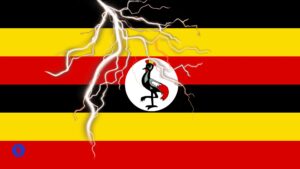France’s parliamentary elections produced some big surprises and bigger headlines yesterday (Sunday). Here’s what you need to know.
You might recall President Macron’s centrist party got nailed in the EU elections last month. So he surprised everyone by rolling the fluffy dice with these snap elections back home. His aim was to:
- a) fend off claims that he’d lost his legitimacy, and
- b) call voters’ bluff: ie, he was betting folks wouldn’t hand parliament to the nationalist-populist National Rally (RN).
So did his gambit work? That depends on who – and what – you ask. The count is still being finalised, but here are six big questions (and a few answers, too):
Stay on top of your world from inside your inbox.
Subscribe for free today and receive way much more insights.
Trusted by 134,000+ subscribers
No spam. No noise. Unsubscribe any time.
- Who won the most seats?
France’s leftist coalition won the biggest share of seats (182), followed by Macron’s centrists (168), and then the right-leaning RN (143), who were actually projected to come first (hence the big upset and big headlines).
- Who won the most votes?
The right-leaning RN still won a) more votes than anyone else; b) more parliamentary votes than it’s ever won before (it only got seven seats in 2017); and c) it even won a bigger share than it did at last month’s EU elections.
But contrary to initial polling, the RN still fell way short of a majority. So the party’s long-time figurehead Marine Le Pen is calling that a “delayed victory“.
- Who lost?
That’d be Macron’s centrist party, which lost a third of its seats (~80 out of 240). So France’s centre really crumbled, amid frustrations against yet another incumbent over inflation, wages, migration, and beyond.
- Okay Intrigue, just tell us who won!
Settle down.
No bloc has come close to a majority (289 seats). But some are still claiming victory, mostly because the RN fell short (after centrists and leftists united): many view the EU-and-migration-sceptic RN as “far right“, notwithstanding Le Pen’s ongoing attempt at rebranding, plus the party’s vow to raise the minimum wage.
- So what does all this mean?
When Macron called this surprise election, he said the country needed “clarification“. And sure, we got clarification in the sense that all kinds of parties managed to join forces and dash the right’s hopes. But we also got more confusionin the sense that it’s pretty unclear what happens now.
The immediate result is a hung parliament. And not only do the three main blocs revile one another, they also – in a deliciously French twist – revile themselves:
- The left coalition is made up of bickering Socialists (centre-left), Communists, Greens, and a hard left ‘France Unbowed‘ party.
- Macron’s own centrists revile him now that it’s clear he effectively just gave away 80 seats along with their ability to get much done, and
- There are also rumours of finger-pointing within the RN.
- Then what’s next?
Macron is still president until 2027 and will still lead France’s approach to the world. And he now has to pick another prime minister to drive more of the agenda back home, though it’s unclear who could survive such a polarised parliament.
So all in all, it’s like France swerved to avoid skidding off to the right, only to instead hurtle down a foggy, uncharted ravine to the left.
INTRIGUE’S TAKE
Now let’s pin down some take-aways:
- This election has hit fast-forward on Macron’s conversion to a lame-duck president (his term finishes in 2027)
- Domestic wrangling means he’ll also have less headspace to focus abroad (and fewer world leaders will be listening anyway), and
- While the top-placed leftist coalition has reiterated support for Ukraine, vowed to recognise the state of Palestine, and condemned the “Hamas terrorist massacres“, it’s also been silent on (for example) France’s future in NATO, reflecting divisions across France’s left.
Meanwhile, France’s standing abroad will also be shaped by its fortunes back home. And the left’s platform (eg, a 90% top-end tax, and reversing Macron’s pension reform) is generating some debate: the IMF’s former chief economist has described it as ignoring the ‘inequality v growth’ balance, saying it’ll “lead to an economic catastrophe“.
And then of course, after such a heated campaign and such a divided result, it’s hard to see any genuinely unifying or effective force emerging. And that might ultimately benefit the RN, which will watch on until its next shot in 2027.
Also worth noting:
- The constitution says Macron can’t dissolve parliament again for at least 12 months, so there’s no re-do for now. Macron’s own Gabriel Attal will stay on as caretaker PM during the Olympics and until a new PM is found (that could take a while).
- This weekend’s election saw France’s highest turnout (60%) for a parliamentary election since 1981. It stood at 38% in 2022.
- France’s former president (and Macron’s former boss), François Hollande, won a seat with the left-leaning alliance. He’s now France’s second ever former president to return to the legislature.








